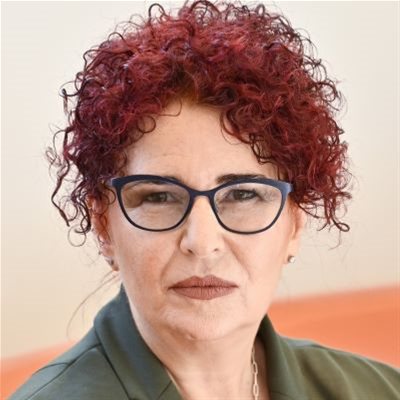Holding the European social model when challenged by external pressures, internal effects and continuous crises

Christa Schweng, president of the European Economic and Social Committee
In 2020, the COVID-19 pandemic led to a deep economic recession; however, thanks to unprecedented EU support measures, by the beginning of 2022, we saw promising signs of recovery. Now, Europe is faced with yet another crisis: the war in Ukraine. The economic and social fallout of the unprovoked and unjustified Russian aggression against Ukraine will jeopardise the still fragile recovery of Europe.
It is still difficult to estimate the consequences of the war, with sanctions already introduced as a response to the Russian aggression. EU Member States and European regions will be affected in different ways and to different extents. One reason for this is dependency on Russian oil and gas, which differs between Member States. While the EU imports around 44 % of its gas from Russia, some EU Member States have a much higher dependence (e.g. Austria, around 80 % of whose gas is Russian).
As the impacts on the EU Member States will be asymmetric, solidarity and a common European response to mitigating the new economic and social hardships will be key. It is clear that Europe needs to accelerate the development of its technological and strategic autonomy, especially regarding energy, critical raw materials and food.
After the end of the lockdowns in Europe, we have seen job creation return, but companies experience serious difficulties in finding people with the right skills
Europe’s future needs to be based on a prosperous, resilient and sustainable economy that leaves no one behind. We have to foster the necessary reforms to help Europe face the digital and green transitions, which are a particular challenge for local economies. At the same time, the EU must continue work to reduce territorial disparities, and to ensure upward convergence and strengthened economic and social cohesion.
While many Member States have seen an increasing trend towards population concentration over the past decades, with movement from rural regions to large cities, it will be crucial to reverse this trend by making life in the countryside more attractive. This include access to essential services, digitalisation and new business opportunities.
Demographic ageing is another cross-cutting phenomenon that is a significant challenge when it comes to preserving the European social model. By 2030, Europe will have the oldest society in the world, which means that a smaller workforce will have to support more dependents in the future. In this context, we will need more competitiveness and productivity, and more people to be active in the labour market.
However, a key issue that needs to be tackled is the mismatch between people’s skills and enterprises’ needs. After the end of the lockdowns in Europe, we have seen job creation return, but companies experience serious difficulties in finding people with the right skills.
According to a European Commission study, ‘38 % of workplaces report that the lack of digital skills has an impact on their performance’. The World Economic Forum also pointed out that, in 10 years, 50 % of jobs will be changed by automation, and 9 out of 10 jobs will require digital skills
Implementing an agenda that delivers socially, economically and environmentally is now more pressing than ever
Investing in upskilling and reskilling is also a requirement to allow people to benefit from the twin transition, and to increase competitiveness and innovation in the EU. With job requirements changing more rapidly than ever, people need to have a genuine lifelong learning mindset to be able to adapt and thrive in their careers.
One of the top priorities is to include as many people in the labour market as possible. Therefore, the EESC highlighted the need for effective active labour market policies and strong public employment services to encourage more unemployed and inactive people to take up employment or become entrepreneurs. The EU needs to tap into the potential and talent of all women, elderly people, migrants and young people, and equip them with what they need to thrive and have rewarding careers. This requires a holistic approach that embraces various social and economic policies, including work–life balance, an accessible care system, active and healthy ageing policies, and sustainable and integrative migration policies.
Special attention needs to be devoted to young people. This European Year of Youth aims to shine the spotlight on their needs and rights. We need to involve them more in policies, and facilitate their education and work perspectives so that they can thrive and look at the future with confidence.
To conclude, implementing an agenda that delivers socially, economically and environmentally is now more pressing than ever. It cannot be overstated how important it is to fairly and effectively implement the reforms set up in the Member States’ Recovery and Resilience Plans. This can only be done with the full involvement of social partners and organised civil society at all stages of policies, from the design phase to implementation and evaluations.
The EESC calls for minimum standards of consultation and for a partnership principle to be standard operating procedure in the implementation of the current reforms. This will allow us to fully benefit from the experience and the valuable ideas of civil society organisations, which are closest to the realities and needs of those at grassroots level.